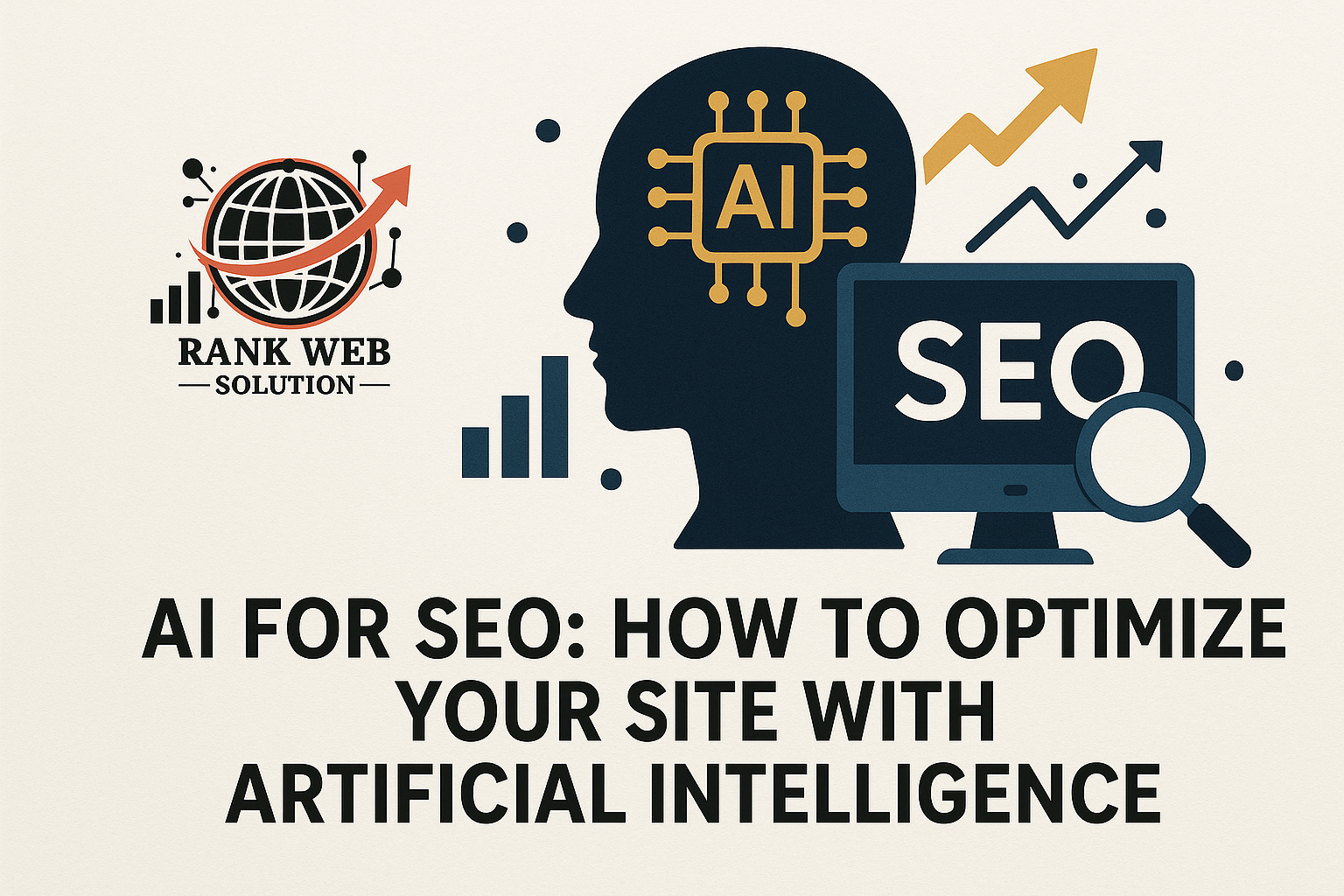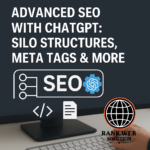Maintaining your lead in search results in the fast-paced digital world of today requires you to continuously improve your SEO approach. One of the most significant shifts in recent years is the integration of AI for SEO—a powerful combination that helps businesses, marketers, and content creators stay competitive and efficient. As search engines get smarter, leveraging artificial intelligence becomes not just a trend but a necessity.
In this article by Rank Web Solution, we explore how AI is transforming SEO, which tools are leading the way, and how you can start optimizing your site with smart, AI-driven strategies.
What Is AI for SEO?
AI for SEO refers to the use of artificial intelligence technologies like machine learning and natural language processing (NLP) to improve search engine optimization efforts. These systems analyze user behavior, understand search intent, generate content, and identify optimization opportunities more quickly and accurately than traditional methods.
Google itself uses AI in its core algorithms, including RankBrain and BERT, which help the search engine better interpret user queries and deliver more relevant results.
Benefits of Using AI in SEO
- Improved Keyword Research
AI tools like Surfer SEO, SEMrush, and Ahrefs use real-time data and predictive algorithms to find the most relevant keywords, including long-tail and intent-based phrases. This helps you move beyond obsolete keyword lists to strategies based on current user behavior. - Content Optimization
With the help of NLP, AI-powered platforms can evaluate your content’s readability, relevance, and structure. Tools like Frase.io or MarketMuse analyze top-ranking pages and provide suggestions for headings, keyword placement, and content gaps. - Automated Content Creation
Generative AI tools such as ChatGPT or Jasper AI can draft high-quality content, meta descriptions, ad copies, and more. While human editing is still important, these tools speed up production without compromising quality when used responsibly. - Predictive SEO
AI algorithms can analyze past performance, current trends, and competitor activity to forecast future SEO opportunities. This means you can act on insights before trends go mainstream.
Enhanced User Experience (UX)
AI tracks how users interact with your website—scroll depth, click behavior, bounce rates—and helps refine UX elements that influence rankings, such as page speed and mobile responsiveness.
How to Use AI to Optimize Your Website
- Start with AI-Powered Keyword Analysis
Use tools like Clearscope or Topic to generate keyword clusters based on user intent and search volume. Instead of relying only on exact-match keywords, these tools find semantic keywords that support your main topic and improve relevance.
- Use AI for Content Planning and Strategy
Platforms like MarketMuse or Frase allow you to identify content opportunities, topic gaps, and what your competitors are doing. AI helps generate outlines and ensures your content matches both user intent and Google’s expectations.
- Leverage AI for Technical SEO
Crawling and indexing tools like Screaming Frog or DeepCrawl use AI to detect broken links, redirect chains, duplicate content, and other technical issues. Fixing these improves crawlability and site health.
- Personalize Content with AI
AI-driven personalization engines tailor website content based on user location, behavior, and past activity. This boosts engagement and conversions, which are indirect but vital SEO factors.
- Monitor Performance with AI Insights
Tools like Google Analytics 4 and Search Console Insights use machine learning to identify traffic drops, ranking issues, or content underperformance. Use these insights to fine-tune your SEO campaigns.
Is AI Content Safe for SEO?
According to Google’s official stance on AI content, the key factor is quality. Google doesn’t penalise material just because it was created by artificial intelligence Rather, it assesses if the information is original, useful, and exhibits E-E-A-T (trustworthiness, expertise, authority, and experience).
Therefore, AI material can score highly as long as it is accurate, helpful, and subjected to human scrutiny.
For example, SEO.com’s blog highlights how AI tools are assisting rather than replacing human input, helping marketers scale their efforts efficiently without sacrificing value.
Final Thoughts
Artificial Intelligence is not here to replace SEO experts—it’s here to empower them. At Rank Web Solution, we believe that integrating AI for SEO is the future of digital marketing. From improving content strategies to identifying technical issues and optimizing for voice search, AI provides a competitive edge that’s too powerful to ignore.
If you’re ready to take your SEO to the next level, embrace AI tools not just as helpers but as strategic partners in your optimization journey.




